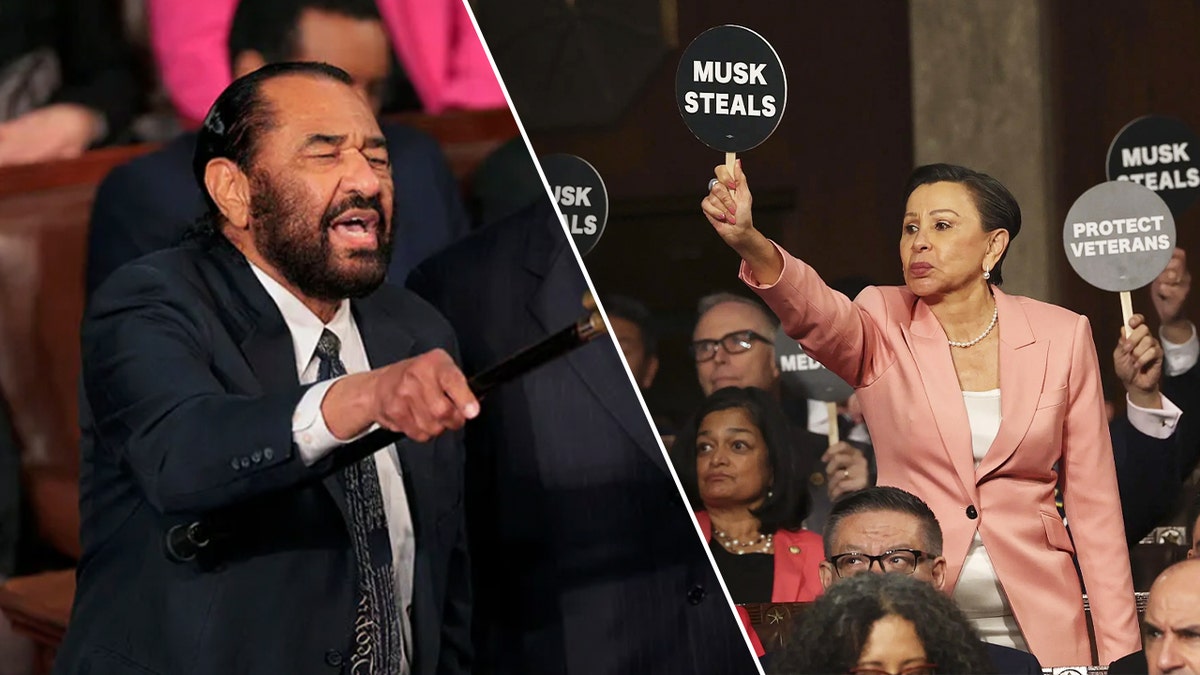Why Democrats Can’t Escape Their Activist Dilemma

Sarah Johnson
March 16, 2025
Brief
Governor Gavin Newsom questions transgender athletes in women's sports, revealing Democratic Party tensions over gender policies and activist influence, as Republicans exploit these divides for political advantage.
California's Governor Gavin Newsom stirred the pot recently by calling the inclusion of transgender-identified male athletes in women’s sports "deeply unfair." What made this eyebrow-raising wasn’t just the statement itself—but the venue where it happened: a podcast hosted by MAGA activist Charlie Kirk. Talk about an unexpected pairing.
But Newsom’s words, while intriguing, fell short of any definitive stance against gender ideology. Instead, they highlight a growing trend within the Democratic Party: voicing skepticism about controversial issues like transgender policies while remaining firmly tied to those ideologies in practice.
The real issue? It’s not just a case of political foot-dragging; it’s structural. Democrats are caught between acknowledging that their activist class is increasingly unpopular and still relying on those same activists for funding, organization, and voter mobilization. It’s like trying to walk a tightrope while holding a bag of bricks. This tug-of-war leaves Democrats vulnerable to Republican attacks, particularly on gender issues. For the GOP, it’s not just about sports policies—it’s a way to argue that Democrats lack the competence to govern effectively.
Here’s where the numbers speak louder than rhetoric. A January poll from the New York Times found that a whopping 79% of Americans—and two-thirds of Democrats—oppose allowing biological men to compete in women’s sports. Despite this, when Republicans proposed a Senate bill to ban it, not a single Democrat broke ranks. Even John Fetterman, the self-proclaimed blue-collar truth-teller, stuck with the party line, labeling trans athletes as "children caught in a political maelstrom." Michigan Sen. Elissa Slotkin echoed similar sentiments, suggesting decisions on these issues should be left to communities.
It’s a classic Democratic move: hedge the rhetoric while firmly sticking to the script. "Leave it to parents" for medical interventions and "leave it to communities" for sports has become the go-to defense. Meanwhile, voters who oppose these policies are left scratching their heads.
So, why won’t Democrats budge? The answer lies in the power dynamics within the party. While elected officials need voter approval every few years, they depend on the party’s activist class daily. Progressive NGOs, advocacy groups, and donor networks wield significant influence, and they’re not interested in compromise. This incentivizes politicians to chase ideological purity over majority opinion.
As authors Ruy Teixeira and John Judis have argued, this reliance on educated, activist elites is alienating working-class and nonwhite voters. But for activists, extreme positions aren’t a problem—they’re a strategy for fundraising and consolidating control over policies. It’s like turning the volume up to eleven to drown out dissent.
The perpetual campaign mode of modern elections only exacerbates this issue. With control of Congress constantly teetering, short-term mobilization takes precedence over long-term coalition-building. Frances Lee’s "Insecure Majorities" explains how this dynamic traps both parties into catering to their most ideological supporters. For Democrats, this means clinging to fringe positions even when they’re costly politically.
Interestingly, while the majority of Democratic voters disagree with gender policies like males in female sports, they don’t prioritize these issues enough to punish their own party at the polls. This lack of voter urgency allows single-issue activist groups to dominate the conversation.
Governor Newsom’s own actions illustrate the disconnect between Democratic rhetoric and reality. While he talks about fairness in sports on podcasts, his record tells another story. In 2020, Newsom signed California’s Transgender Respect, Agency, and Dignity Act, which allows male inmates identifying as female to be housed in women’s prisons. California continues to permit male athletes in female sports and actively fights federal regulations on these matters.
Republicans, meanwhile, are leveraging this inconsistency to paint Democrats as beholden to fringe activists. The argument goes beyond sports policies; it’s about trust. If Democrats can’t stand up to activists on bipartisan issues, why should voters trust them on anything else?
Newsom’s attempt at moderation feels less like a pivot and more like a patch job over deeper fractures in the party. Increasingly, Democrats are talking like moderates but governing like activists. And in politics, you can’t have it both ways. The party’s gamble? That voters will dislike Donald Trump enough to overlook these ideological divides.
Ultimately, the ball is in the Republicans' court. To prove Democrats wrong, they’ll need to do more than hammer them on gender ideology—they’ll need to show they can deliver on the issues voters care about most. Because at the end of the day, politics is about choices, and the stakes couldn’t be higher.
Topics
Editor's Comments
This piece perfectly encapsulates the Democrats' struggle to balance their activist base with mainstream voter concerns. Newsom’s carefully chosen words are a masterclass in political hedging—a classic example of style over substance. But let's be honest: governing like activists while pretending to be moderates is a risky long-term strategy. You can only play the middle for so long before voters start calling your bluff.
Like this article? Share it with your friends!
If you find this article interesting, feel free to share it with your friends!
Thank you for your support! Sharing is the greatest encouragement for us.



